The mist began to dampen my face as we began on our walk to Café Smara, a Tangier café made famous by the novel Si Yussef. We walked down what was, for me, an unfamiliar part of Tangier just as the sun began to peak from its hiding place behind the clouds. The sun brought a smile to my face after the weeks of rain. Mourad, our campus manager, led the group. He weaved through the narrow streets, and he could’ve walked through them blindfolded, having lived there much of his life. It was there years ago that he first met Dr. Anouar Majid, the novelist we were about to interview. We began to wind down the streets and passed produce stands, small bakeries, fish and meat markets, and vendors advertising knock-off Gucci apparel. I made sure to stay close to Mourad, as I was sure to get lost without him. He described the place as something along the lines of a “ghetto”—we were, he said, not in the best part of town. I, however, never felt nervous as I knew Mourad would keep us safe.
He said that we were approaching our final destination.
My first impression of Café Smara was that it wasn’t packed with the annoying, catcalling old men I had become accustomed to along the walk to the medina and the Lazy Wall. Our large group filed into the café and we filled the indoor seating section, or so we thought. We later learned that there were two more floors above us.
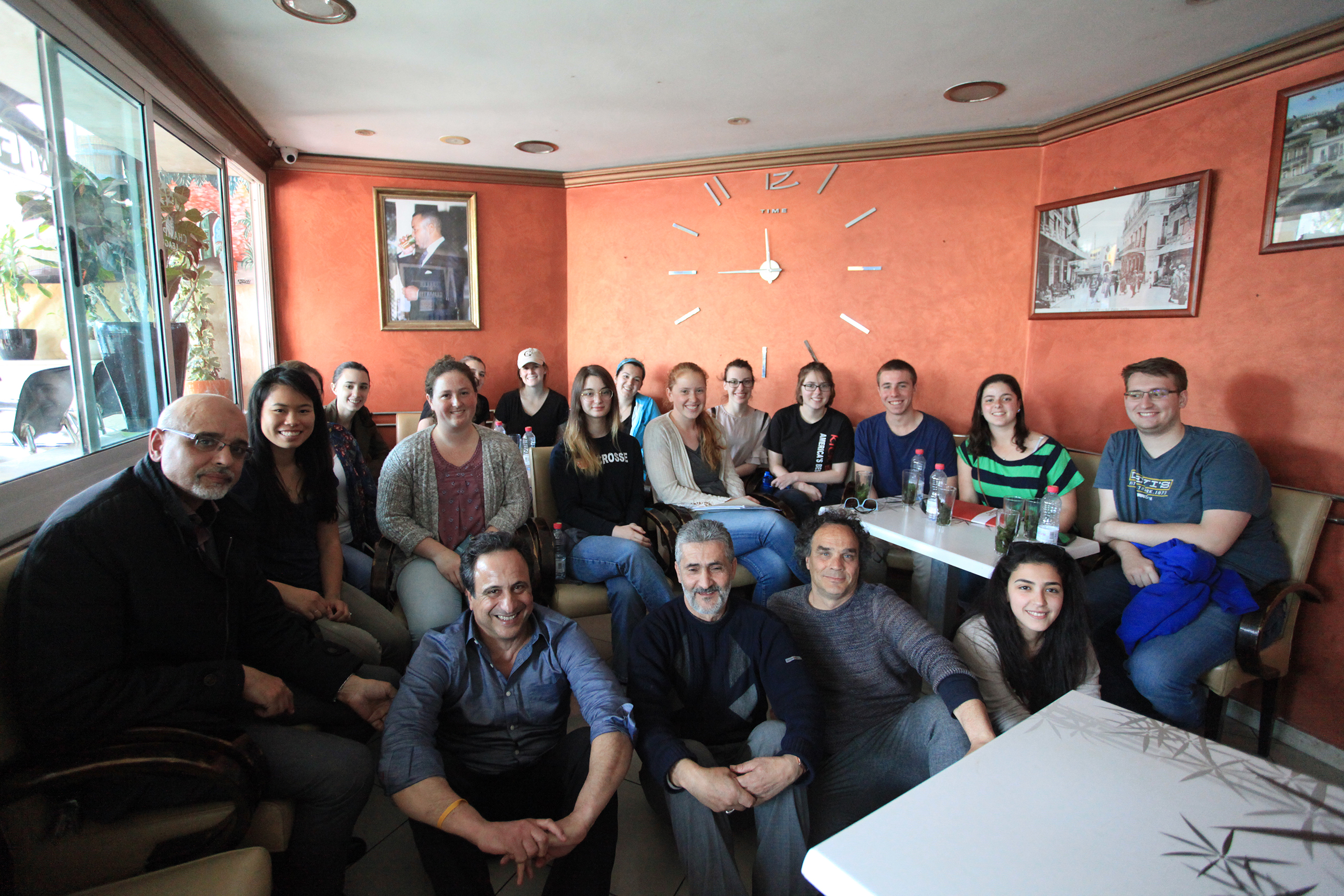
Large windows on one side allowed in the beautiful sunlight, while a television in the corner streamed a Spanish channel showing a program about deep sea fishing. While everyone settled in, I was captivated, being a marine biology major, by the amazing fish being caught from the depths of the ocean. I noticed a ‘No Smoking’ sign on the back wall, and I took in a deep breath, cherishing the smoke-free air—a novelty for a café in Tangier. My asthmatic lungs thanked the café owner for the clean air. A giant clock hung on the wall behind me, its long-broken, unmoving arms coming to a stop at three o’clock. A free-wifi sign hung on the wall behind me—this café clearly tried to keep up with the times.
A waiter, in a gentlemanly bow, set a steaming cup of Moroccan mint tea in front of me, its comforting scent drifting to my nose. I hugged the tea to my chest, soaking in the warmth as Dr. Majid came to sit in front of us.
Personally, I didn’t know Dr. Majid very well, only having met him a few times over the course of the semester as our university’s vice president. However, after reading a section of his novel, Si Yussef, I felt like he was somehow familiar to me. We sat in the very café that inspired him to write the novel, a story loosely based on an old man Anouar once met there. Anouar was quick to add that “writing allows you to see the hidden magic in everyday life.”
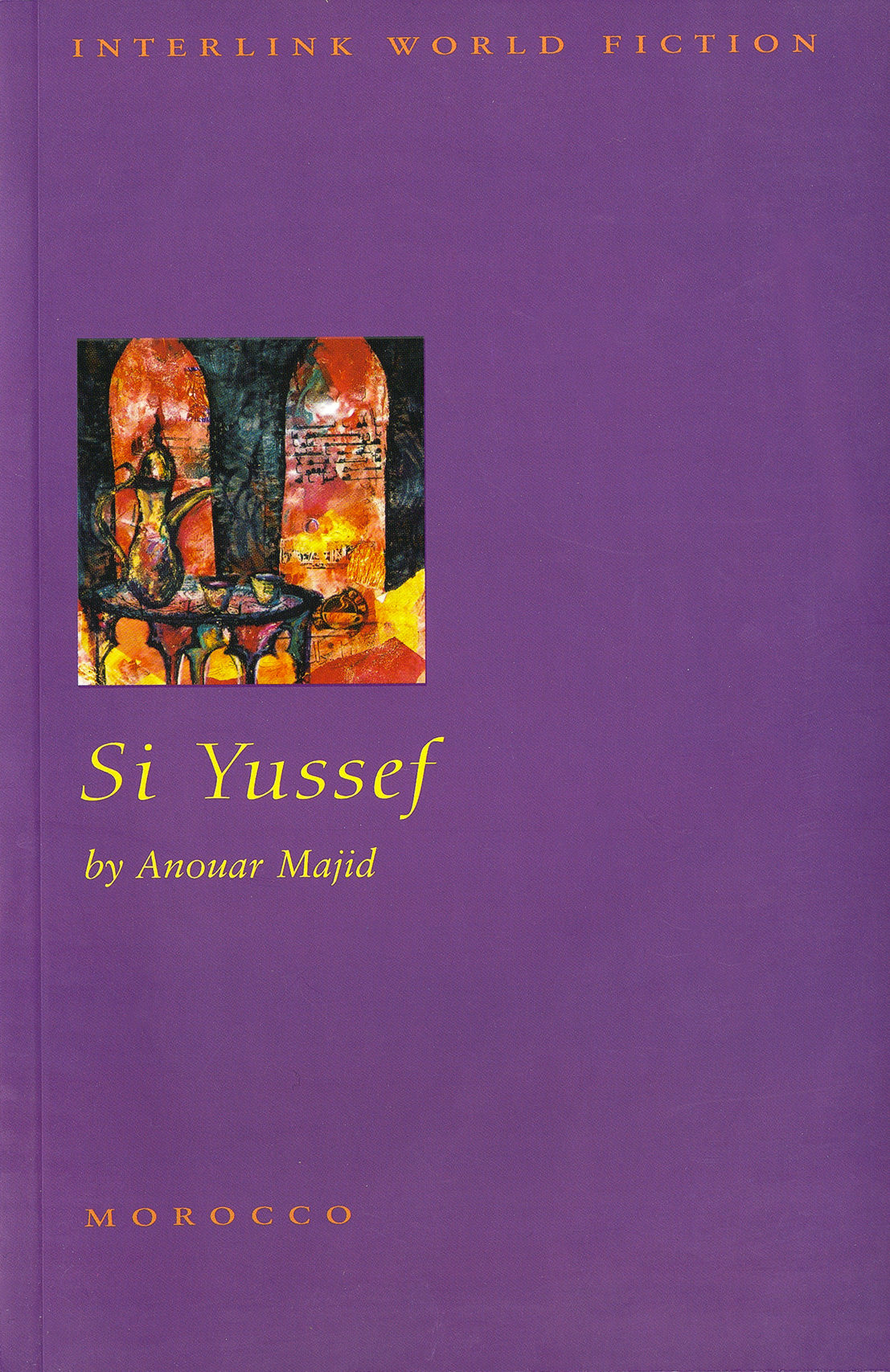
He began by talking about the café and how, as a student, he used to visit it frequently to observe the other patrons sit for hours over a single glass of tea. “Just look at that,” he said pointing to the broken clock on the wall. “Everybody in the world seems to be on the same time nowadays, just not here. Time is different here in Morocco. Ben Franklin said that ‘time is money,’ but he was never in Morocco.”
He mentioned that whenever he returns to Café Smara, he’s filled with the nostalgia, loving it as much now as he did as a student. Although the café has changed and made renovations over the years, it’s never betrayed its roots and original charm.
An example was the TV sitting along the wall. Anouar mentioned how a television was always there. Back then few other cafés had such a luxury, and the TV lured in patrons who flocked to the café to watch their favorite Spanish shows. Anouar even mentions it briefly at the beginning of his novel: “The television screen which was displaying the regular afternoon feature of Japanese cartoons dubbed into Spanish and seemed to acknowledge, in a rather reasonable fatherly gesture, the relevance of that irrelevant show.”
The novel also describes the pride the café owner, Ashab, had in his blender and how its sound resonated down the streets of the city. “He was the first Tanjawi to introduce the blender, not only to the café system, but also to the customers’ palates.” The blender wasn’t there during our visit, having moved next door to the owner’s second shop where they serve milkshakes and juice.
As Dr. Majid continued to talk, I found myself nodding in agreement when he referred to his novel as “a love letter to Tangier.” Tangier is a city that brings together both the old and the new. The old medina preserves Spanish and Moorish influences while the Boulevard and Café Smara sing the song of the latest fads in Western culture.
When someone asked about the differences between the new Tangier and the old, Anouar said that the Internet has no doubt changed the city. With the internet, you have the ability to see anything at any time, anywhere in the world. Morocco, in this sense, is not very different from the United States.
He’s right, and I thought of how I have access to virtually anything at the touch of a finger. Personally, I’m grateful for this as it allows me to keep in touch with people. Just this past Sunday, I was able to FaceTime my family and join in on their Easter dinner.
As we all finished our questions for Anouar, he passed on some wisdom to us. “People are everything,” he said, and “we should be daring in life, even if we get hurt. It’s better to be hurt than to hurt.”
We finished sipping our tea and explored the rest of the café upstairs where men were playing Chinese checkers and smoking. As we went to leave the café, I wondered what it must’ve been like to enjoy tea here back when Tangier was in its “glory days.” With that last thought, we said our goodbyes and headed back to campus grateful to Dr. Majid for revealing to us the hidden beauty of Tangier and the place which inspired his novel.
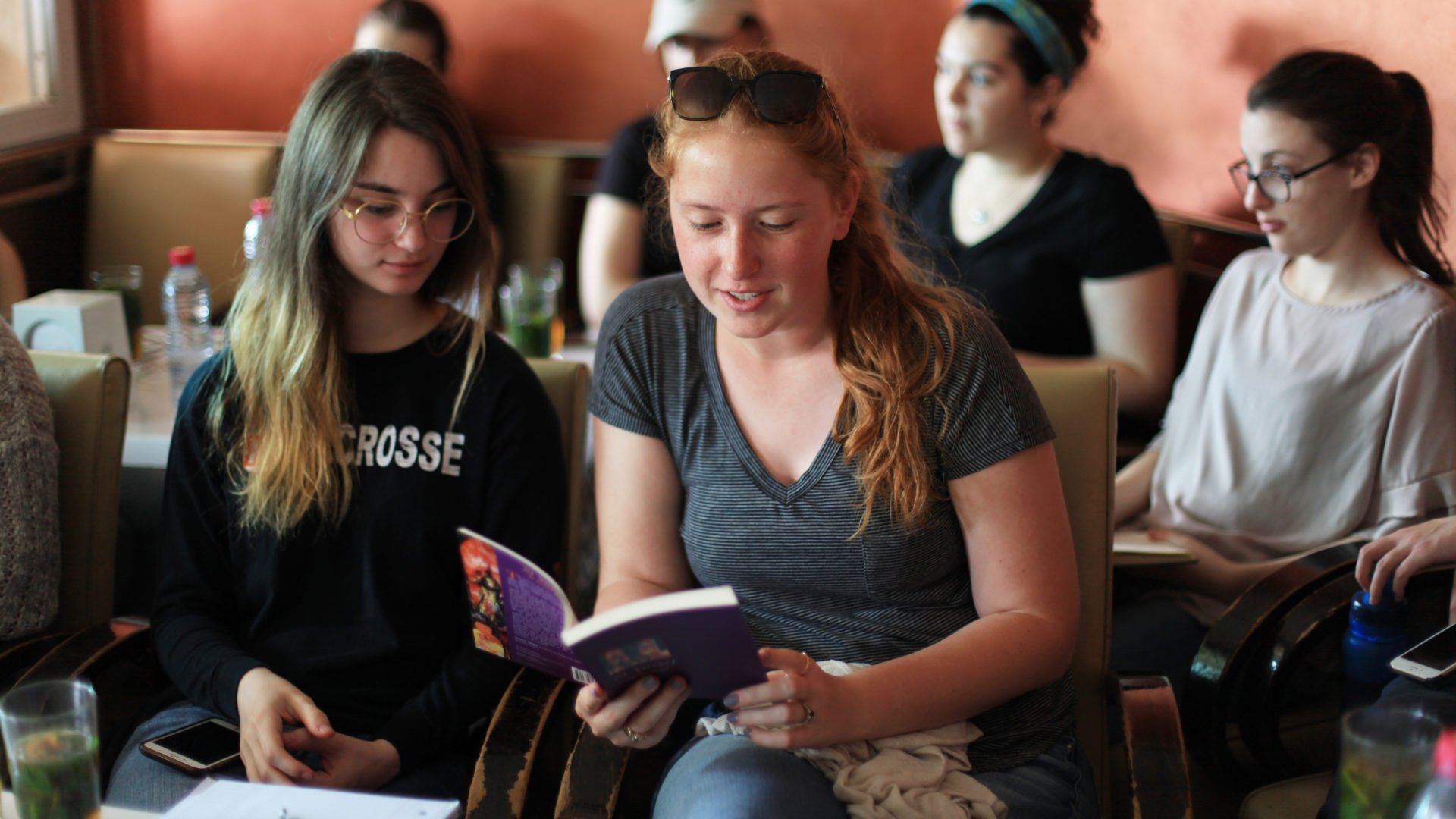
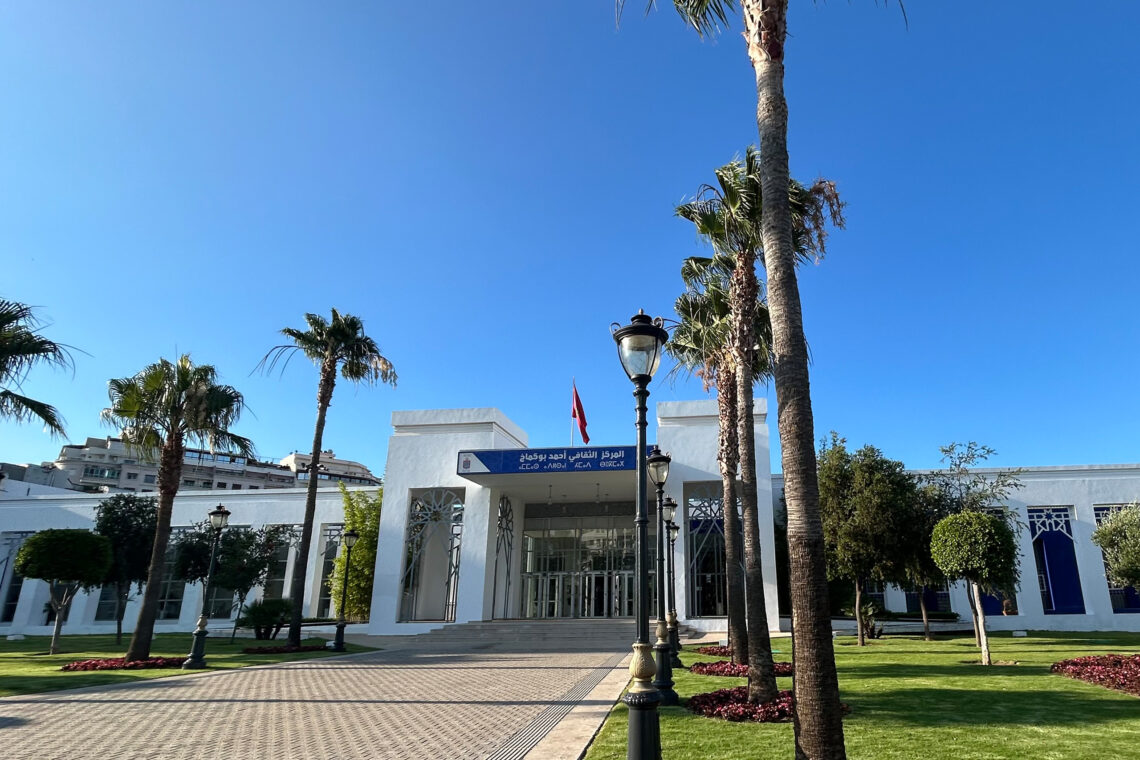
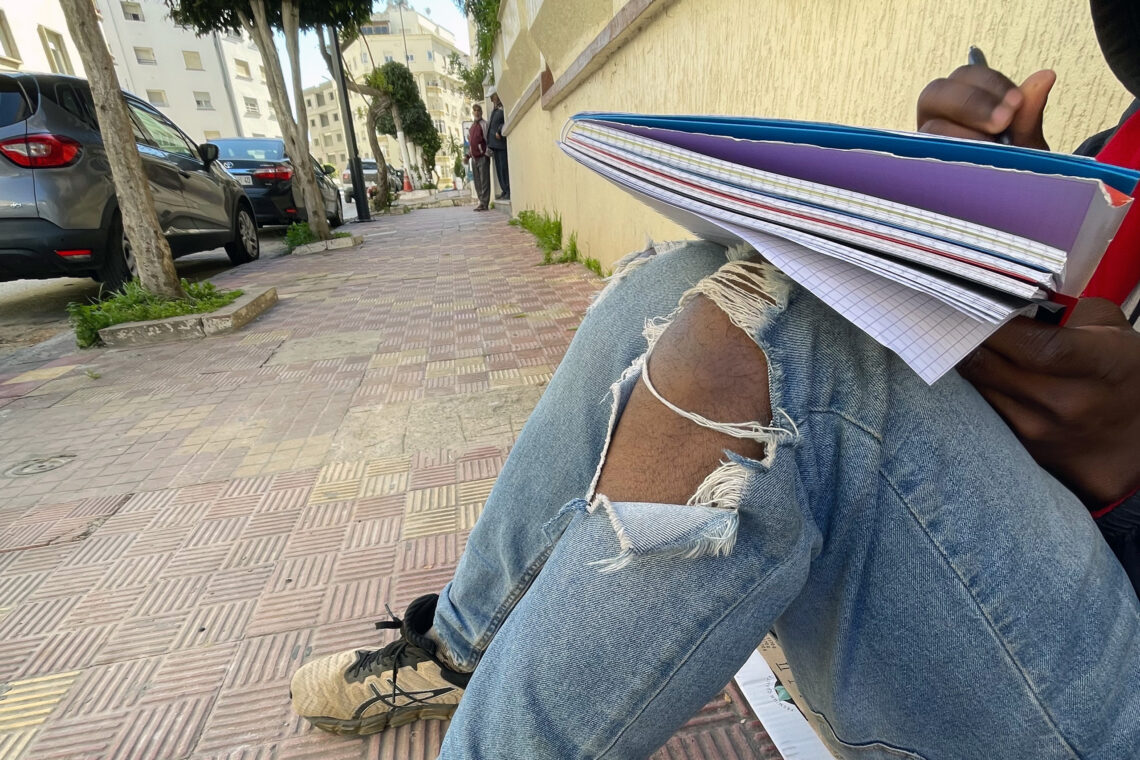
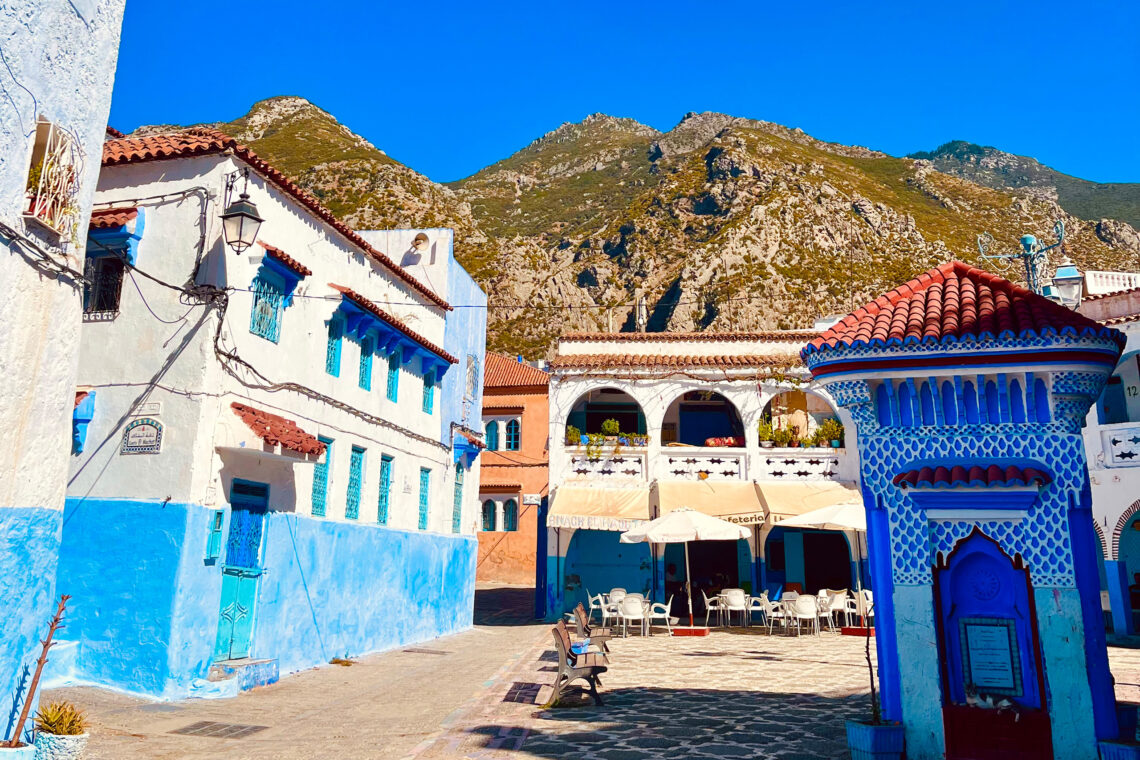
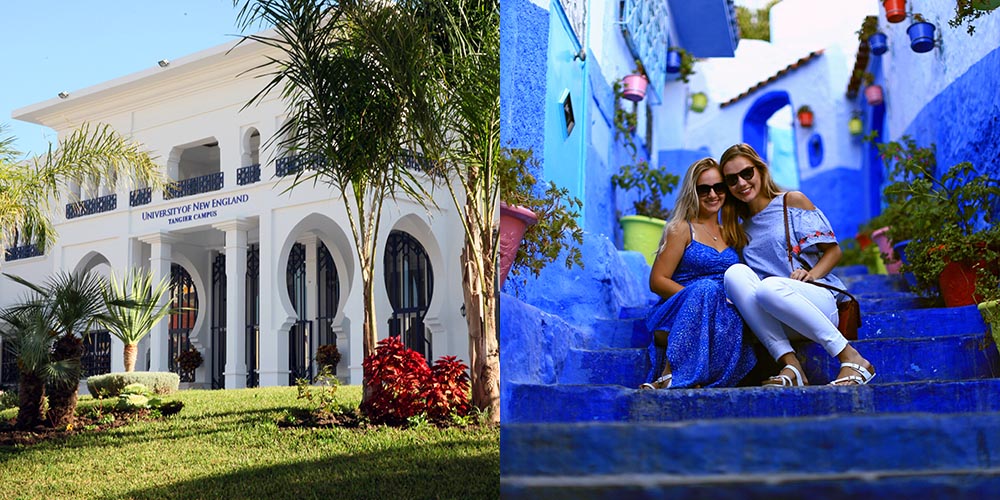

Interesting article. Never heard of this cafe before as a Tangier native.
The “glory days” of any city will come and go, success and failure are cyclical and so are cities’ glory days. I believe Tangier is at the dawn of a new and glorious than ever growth.